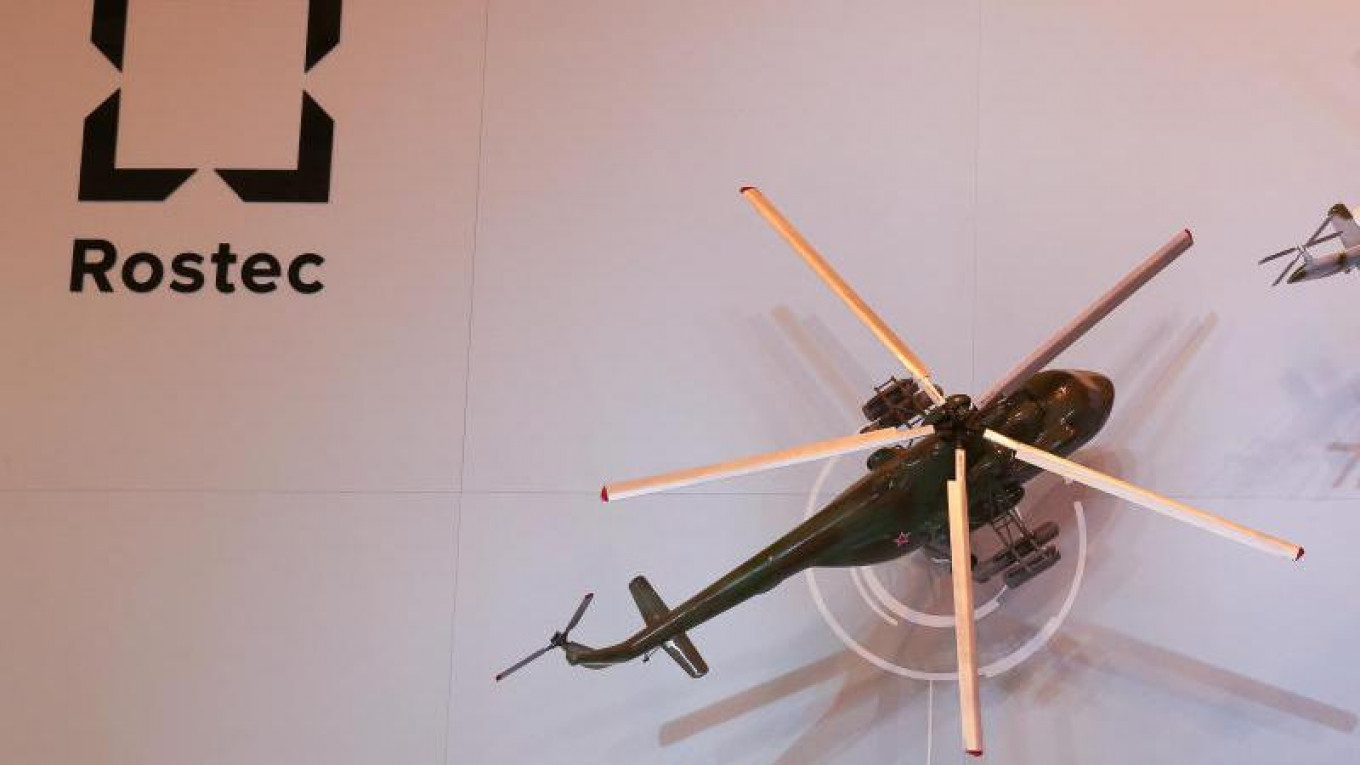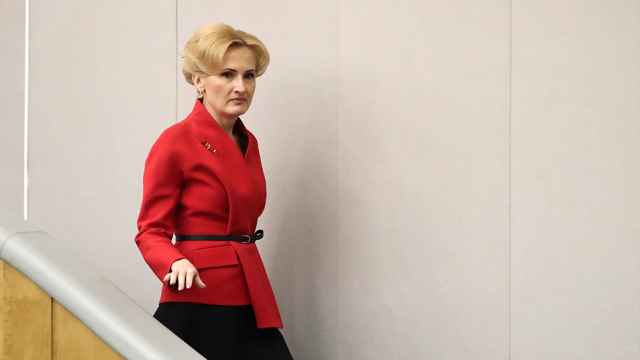Rostec believes that building the infrastructure required to implement Russia's new anti-terror legislation would be a “profitable investment for the Pension Fund of Russia (PFR).”
The Industry and Trade Ministry suggested to President Vladimir Putin that the National Informatics Center (NIC), a Rostec subsidiary, be entrusted with implementing the law requiring the storage of phone and Internet communications that was authored by State Duma Deputy Irina Yarovaya and Senator Viktor Ozerov.
The ministry is confident that the NIC is up to the task, that
this option will save money by centralizing a range of technical
requirements, and that it will allow phone operators to simply pay a
regular fee for the service rather than footing the bill for
developing the costly data storage facility themselves.
Major phone operators would have to pay 3 billion rubles ($46
million) to 4 billion rubles ($61 million) per year, totaling 95
billion rubles to 105 billion rubles over five years, Rostec Acting
CEO Vladimir Artyakov said in a letter to Industry and Trade Minister
Denis Manturov, according to two sources close to Rostec.
The so-called “Yarovaya Law” states that as of July 1, 2018
Russian telecom operators and Internet service providers must store
all of their customers’ traffic – calls, letters, files, and
conversations – for up to six months, with the government to name
the exact period later. They must also store a record of the fact of
such communications for three years. Federation Council president
Valentina Matvienko wrote to Russia’s “big four” mobile
operators – MTS, Megafon, Vimpelcom and Tele2 – informing them
that the creation of such a data storage system would cost them 2.2
trillion rubles ($33.8 billion).
Rostec representatives declined to estimate how much the new data
storage system might cost, but suggested it would be “many times
cheaper than figures previously reported in the media.” A
Rostelecom representative said it is impossible to calculate those
costs until the government formulates the associated by-laws.
In its letter to the ministry, Rostec proposed “using
market-based instruments” to finance the development of the unified
data storage facility. It added that, because “major, highly
solvent companies” would be using the service, funding the
development could be a “reliable and profitable investment for the
Pension Fund of Russia (PFR).”
Rostec was probably referring to pension assets rather than to the
operating funds of the PFR itself, said Pension Fund representative
Marita Nagoga. They are distributed almost equally between the
Private Pension Fund (NPF) and Vneshekonombank (VEB). Nagoga
explained that the PFR itself has only two types of expenditures –
payouts for pensions and benefits, and its own operating expenses.
Only the Finance Ministry and Central Bank have the authority to
invest pension assets in
projects, she said.
No decision has yet been made regarding which fund to tap,
although the NPF is a distinct possibility, one source close to
Rostec said. Current Russian law allows leaders to use pension assets
to make even relatively risky investments, but putting that money in
a unified data storage facility is a safe bet because wealthy telecom
operators will finance its operations, one source said.
Rostec and Industry and Trade Ministry representatives declined to
comment on the possibility of using pension assets to fund the
project.
As of late June 2016, VEB was managing a little less than one-half
of all pension savings in Russia, or 1.8 trillion rubles. (The NPF
manages more than 2 trillion rubles.) Most of that total – 40.8
percent, or 748.9 billion rubles – is invested in Finance Ministry
securities, while another 37 percent, or 680.2 billion rubles, is
place in securities issued by Russian companies.
Replenishment of the savings portion of Russians’ pensions was
suspended in 2014. Prior to that, the PFR handed over pension savings
to either the NPF and private asset
management companies – by decision of the insured – or else, by
default, to VEB. Management companies currently handle
approximately 33 billion rubles in pension savings, investing them
according to official PFR rules that require each of them to
formulate an investment declaration, said Capital management company
CEO Vadim Soskov. In the 13 years that these private companies have
been investing pension savings, the government has never issued
direct orders that those firms purchase a particular security, Soskov
said.
A VEB representative said the bank had not received any request to
support the project connected with the Yarovaya law. The Central
Bank, Finance Ministry, and presidential spokesman Dmitry Peskov did
not respond to inquiries.
A Message from The Moscow Times:
Dear readers,
We are facing unprecedented challenges. Russia's Prosecutor General's Office has designated The Moscow Times as an "undesirable" organization, criminalizing our work and putting our staff at risk of prosecution. This follows our earlier unjust labeling as a "foreign agent."
These actions are direct attempts to silence independent journalism in Russia. The authorities claim our work "discredits the decisions of the Russian leadership." We see things differently: we strive to provide accurate, unbiased reporting on Russia.
We, the journalists of The Moscow Times, refuse to be silenced. But to continue our work, we need your help.
Your support, no matter how small, makes a world of difference. If you can, please support us monthly starting from just $2. It's quick to set up, and every contribution makes a significant impact.
By supporting The Moscow Times, you're defending open, independent journalism in the face of repression. Thank you for standing with us.
Remind me later.





